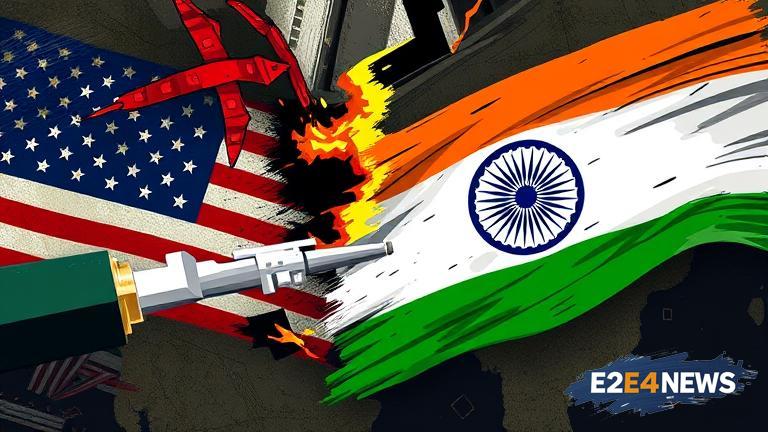The United States has announced a 25% tariff penalty on India, effective August 1, in response to India’s digital services tax and other trade restrictions. This move is seen as a significant escalation of the trade tensions between the two countries. The US Trade Representative’s office has stated that the tariffs are being imposed in response to India’s failure to provide adequate and effective protection of intellectual property rights. The tariffs will apply to a range of Indian goods, including textiles, jewelry, and chemicals. The move is expected to have a significant impact on Indian exporters, who will face higher costs and reduced competitiveness in the US market. The Indian government has expressed disappointment and concern over the US decision, stating that it will harm Indian businesses and the economy. The US has been critical of India’s digital services tax, which it sees as discriminatory and unfair. The tax applies to foreign companies providing digital services in India, including Google, Facebook, and Amazon. The US has also been critical of India’s restrictions on the import of certain goods, including agricultural products and medical devices. The trade tensions between the US and India have been escalating over the past year, with both countries imposing tariffs and other trade restrictions on each other. The US has been seeking greater access to the Indian market, particularly in the areas of agriculture and pharmaceuticals. India has been resisting these efforts, citing concerns over the impact on its domestic industries. The imposition of tariffs by the US is seen as a significant blow to India’s export-led growth strategy. The Indian government has been seeking to promote exports as a key driver of economic growth, but the tariffs will make it more difficult for Indian companies to compete in the US market. The tariffs will also have a negative impact on the Indian economy, which is already facing significant challenges, including a slowdown in growth and a decline in investment. The Indian government has stated that it will take all necessary steps to protect the interests of Indian businesses and the economy. The US decision to impose tariffs on India has been widely criticized by Indian industry leaders and trade experts. They argue that the tariffs will harm Indian businesses and the economy, and will also have a negative impact on the global trading system. The World Trade Organization (WTO) has also expressed concern over the growing trade tensions between the US and India. The WTO has urged both countries to engage in constructive dialogue and to seek a resolution to their trade differences through the WTO’s dispute settlement mechanism. The trade tensions between the US and India are also having a negative impact on the global economy. The International Monetary Fund (IMF) has warned that the growing trade tensions between the US and other countries, including India, could have a significant negative impact on global economic growth. The IMF has urged all countries to avoid imposing tariffs and other trade restrictions, and to seek a resolution to their trade differences through constructive dialogue and cooperation. In conclusion, the US imposition of a 25% tariff penalty on India is a significant escalation of the trade tensions between the two countries. The move is expected to have a negative impact on Indian exporters, the Indian economy, and the global trading system. The Indian government has stated that it will take all necessary steps to protect the interests of Indian businesses and the economy, and has urged the US to reconsider its decision to impose tariffs.
